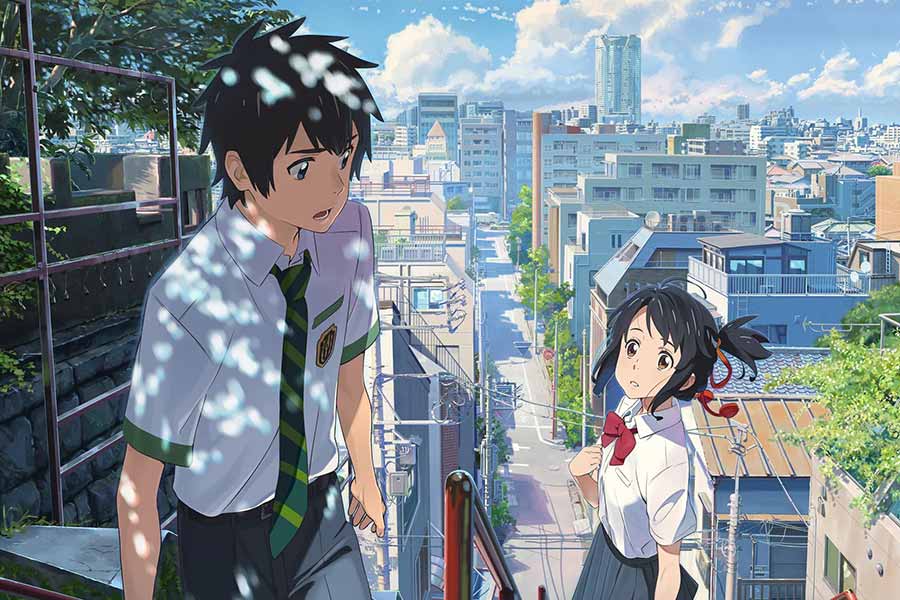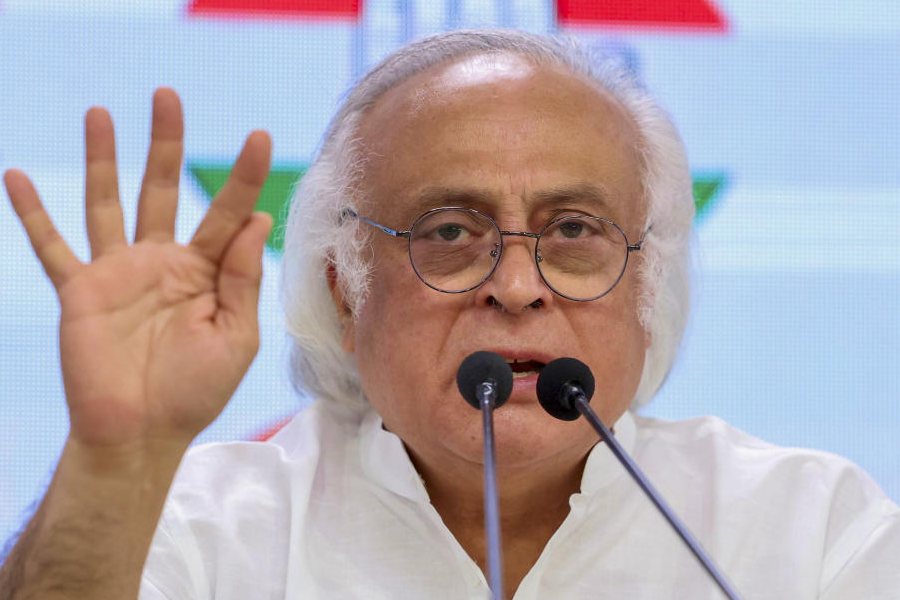PVR Cinemas has launched the Makoto Shinkai Film Festival across 100 locations in India, including Kolkata, in partnership with CoMix Wave Films and Japanese Film Festival India. The celebration of Shinkai’s genius got underway on May 19, debuting with a rerun of the 2016 blockbuster anime film, Your Name (Kimi no Na wa).
All INOX and PVR theatres across the nation have united Shinkai fans through their shared love for the Japanese director’s masterpieces. The festival is a tribute to the multiple award-winning director, screening five films that have garnered immense appreciation from weebs all throughout — Your Name, Weathering With You, 5 Centimeters Per Second, Children Who Chase Lost Voices from Deep Below and the recent hit, Suzume. The Garden of Words, a favourite of most Shinkai lovers, has been excluded from the list because of its short running time of 46 minutes.
When Your Name was released in 2016, it instantly became a massive commercial success, especially in Japan. It hurled Shinkai into the cinematic spotlight and it remains his magnum opus till date. The film is as much a commercial success as it is a critically acclaimed one. Your Name’s brilliance lies in its juggling of everyday themes like love, lacking, fate and distance under the veneer of Japanese myths, spirituality and other-worldly events. It is no wonder that after Hayao Miyazaki’s Oscar-winning anime film Spirited Away, Your Name is one of the most successful and highest grossing films in Japan.
Mitsuha and Taki: Two beings wound by the threads of fate
The plot of Your Name might sound strange but that is what makes it unique in its approach to love and life. It is the story of two teenagers, Mitsuha and Taki, waking up one day to find their bodies swapped with each other. Mitsuha Miyamizu is from a small town in Japan named Itomori, who dreams of living in Tokyo. Taki Tachibana lives in Tokyo, juggling high school and part-time work, aspiring to be a successful architect.
Sleeping triggers the switch of bodies between them and the memories of being in the other’s body feel like a dream when they get back to their own bodies. While they are in the switched condition, they leave notes about the happenings of the day on each other’s phones. Gradually, both of them feel a bond with someone they do not know. The story is Shinkai’s way of depicting two beings wound by the threads of fate, who experience an insurmountable distance between themselves.
Like other Shinkai films, Your Name is also set against the backdrop of a great disaster in Japan. It is inspired by the devastating earthquake that hit Japan in 2011. In the movie, the catastrophe is fictionalised in the form of a comet named Tiamat that strikes Itomori, causing widespread destruction.
The distance between people, a consistent Shinkain theme, is the main conflict in Your Name. The comet, before coming near the earth’s surface, splits into two halves and destroys the town of Itomori. This can allude to both the splitting of the bond between Taki and Mitsuha by the daggers of fate and the formation of two soulmates in the oceanic fabric of fate. The latter is ironic, since even after living in each other’s bodies, sharing the same days, nights, people and memories, they cannot quite remember each other, or more precisely, their names. A sense of emptiness prevails in both the protagonists who struggle with yearning for the other self. This is further intensified by the heartfelt and melancholic songs by Japanese band Radwimp in the film, such as Yumetouru, ZenZenZense, Sparkle and Nandemonaiya.
Love cannot be defined, it can only be felt
Your Name is true to its portrayal of Japanese culture. In the beginning, we are introduced to Kuchikamizake, where Mitsuha and her sister, Yotsuha, indulge in a ritualistic dance and prepare mouth-chewed sake to offer to the gods. It is here that Mitsuha expresses her feelings of emptiness and wishes to be a handsome boy living in Tokyo. Mitsuha’s grandmother introduces the sisters to Musubi, which is the old way of summoning the local guardian god. It refers to the flow of time that binds people together and to their individual souls. She also tells them about Kakuriyo, which refers to the other world.
Shinkai’s film implies that love cannot be defined, it can only be felt. Both Mitsuha and Taki set out on their paths to find each other in worlds separated by physical and spiritual distance. Mitsuha leaves the comfort of her countryside home to look for Taki in the bustling city of Tokyo, while Taki goes out of his messy schedule to find her in Itomori. This is when their fates get entangled, severing their connection. Shinkai uncovers the truth of time, the fact that time repeatedly tangles and untangles. It can unravel and can also be undone.
Your Name is at once a love letter to all people who feel at odds with their lovers because of day-to-day problems in the real world such as lack of communication and distance between themselves. Due to the swapping of their bodies, Mitsuha and Taki understand themselves better. Being in each other’s bodies is like living each other’s lives, taking notes of their individual merits and failures, and conveying them to each other through their own voices.
Despite its supernatural elements, the film exudes a realism that takes its viewers on a journey through the rat race of their lives. With its elegant storytelling, dreamy and astronomical qualities, Your Name will take your heart, wring it and mould it into something different. It is definitely worth a watch in theatres during this one-of-a-kind film festival.










